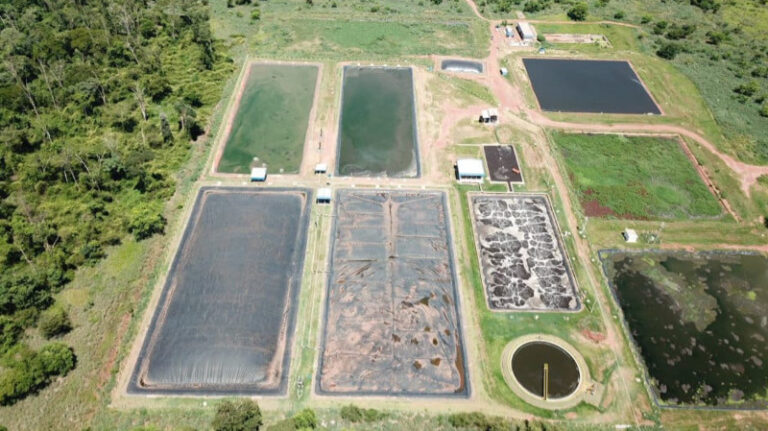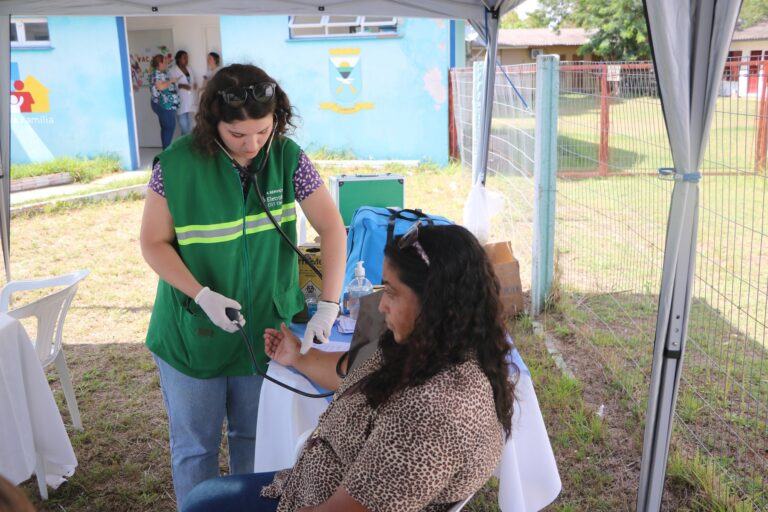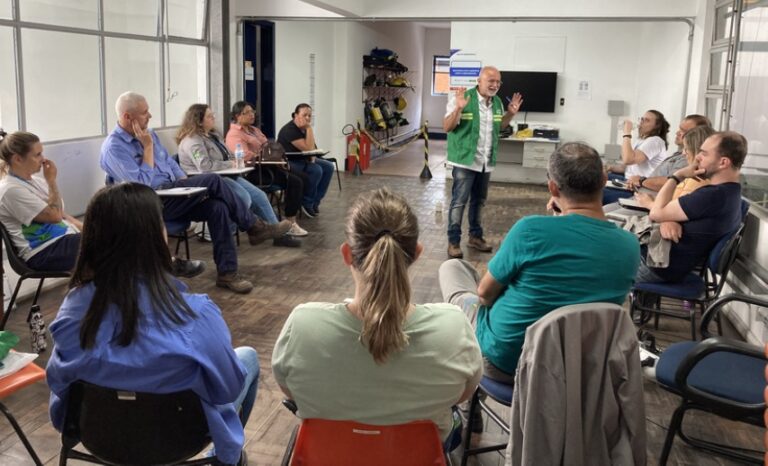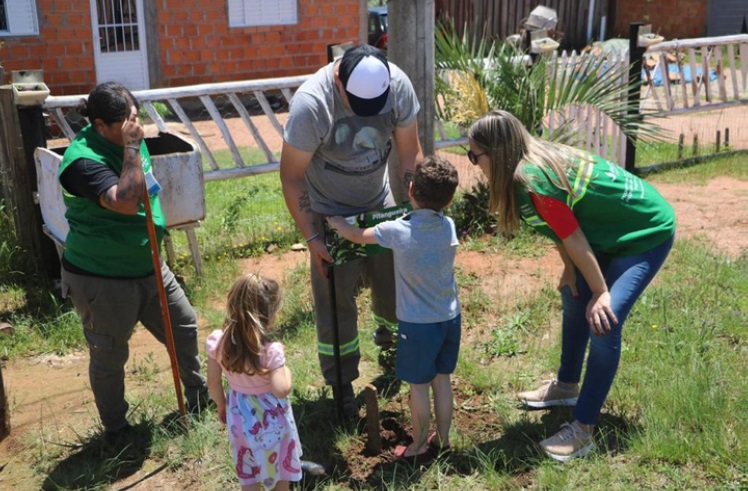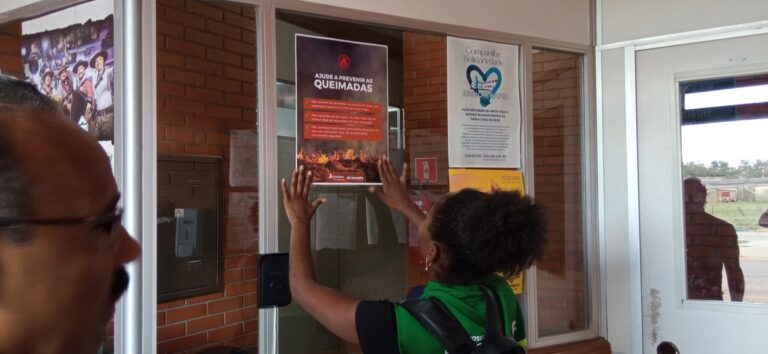Sustainability
Being sustainable is a broad concept that goes far beyond the prevention and mitigation of environmental impacts. For us, it is essential that the social pillar and the economic pillar are also part of this equation. And this translates into the high employability of the populations surrounding our projects and the investment in our portfolio of assets, which contribute to energy security and drive the country’s economic growth.
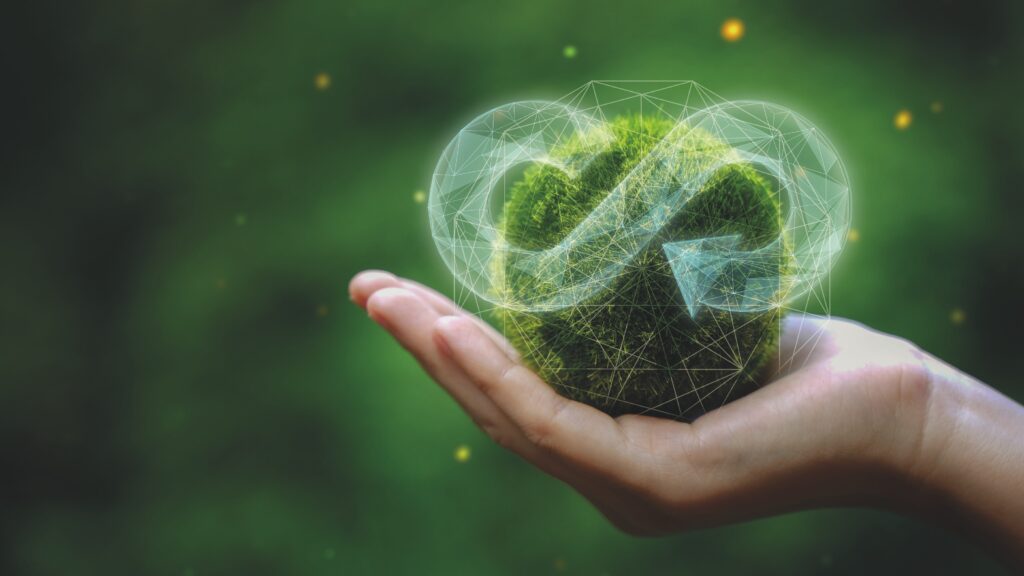
Sustainable Energy Projects
By investing in the production of energy from renewable sources, such as solar, biogas, biomass and small hydroelectric plants (SHPs), we seek to strengthen and diversify the Brazilian energy matrix, contributing to its decarbonization process.
Learn more about our initiatives:
In Swift stores, a JBS brand, we invested 150 million reais in solar generation farms, which today supply 44% of the establishments in the state of São Paulo. There are already 101 stores with photovoltaic panels and our goal is to supply all 225 stores of the brand by the end of 2025. In 2022, solar roofs produced 1.618 million kWh, avoiding the emission of 546 tons of carbon dioxide equivalent. Electricity produced by biogas, a clean fuel that has been gaining ground in the context of the global energy transition to a low-carbon matrix, also serves 13 Swift stores.
Circular Economy: Our photovoltaic plants in São Paulo and Goiás produce 9,683.18 kWpcc and supply our operations, avoiding the emission of about 2.7 thousand tons of CO2 per month. At the Andradina Plant, the reuse of agricultural waste produces 9,000 cubic meters of biogas per day, contributing to the transition of the energy matrix.
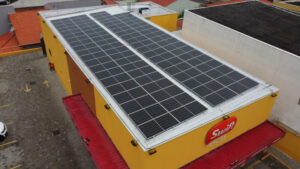
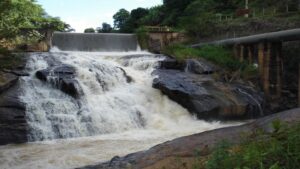
Our Small Hydroelectric Power Plants (SHPs) in Minas Gerais and Santa Catarina generate 41.2 MW and aim to supply customers in the self-production model. In addition to being a renewable and clean energy, this type of energy sale has fewer costs for generators and consumers because it is exempt from some tariffs and charges.
At UTE Candiota (RS), the construction of a solar farm for the generation of green hydrogen is the supply and consumption of the operation.
In Saltinho (SP), we developed a pilot project for the hybridization of power plants, which combines solar and wind energy. The installation of pinwheels with national horizontal technology generates less noise, reducing the environmental impact, especially on the local fauna.
Social and Environmental Responsibility
Both in our thermoelectric plants and in our renewable plants, we adopt strict safety and quality standards, conducting training on responsible waste management and disposal and saving chemical products, in addition to promoting awareness among the surrounding populations through social projects.
Learn more about our initiatives:
At UTE Candiota (RS), we carry out the EcoÂmbar project, which monitors air quality through frequent atmospheric measurements, in addition to promoting community awareness on topics such as domestic violence and prevention of chronic non-communicable diseases (NCDs).
- Environmental Education Program (PEA), with workshops on waste reuse, planting of native seedlings and educational conversation circles.
- Environmental Education Program for Workers (PEAT), which includes immersions, training meetings, socio-environmental blitz and awareness on topics such as mental health, domestic violence and climate change.
- Health Program (HCP), which promotes preventive and educational actions in partnership with Secretariats and Reference and Social Assistance Centers, both for our employees and for the population in general. Prevention of chronic diseases (NCDs), STIs, and women’s health are among the topics covered.
- Social Communication Program (PCS), with dissemination of informative materials about the plant’s activities, atmospheric measurement bulletins, as well as educational campaigns and promotion of educommunicative meetings.
At UTE Cuiabá (MT), we conserve the green area composed of fauna and flora from the Pantanal and the Cerrado. We promote preventive actions against fires, planting of native seedlings and reuse of effluents, minimizing the consumption of surface water from the Cuiabá River.
At UTE Lages (SC), we invest in silviculture practices and in the reuse of agricultural waste, transforming methane into biogas, a clean energy.
In gas pipelines (MT), soil cover and mechanical water containment techniques prevent erosion along the right-of-way. We also promote awareness among local populations by distributing specific materials on safety and welfare standards.
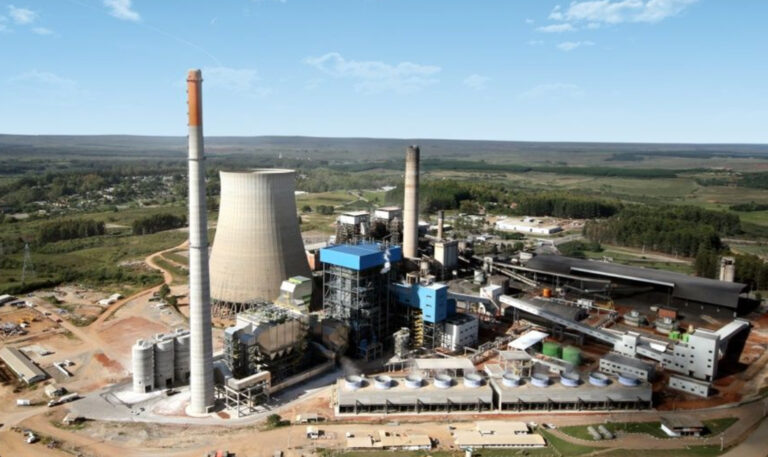
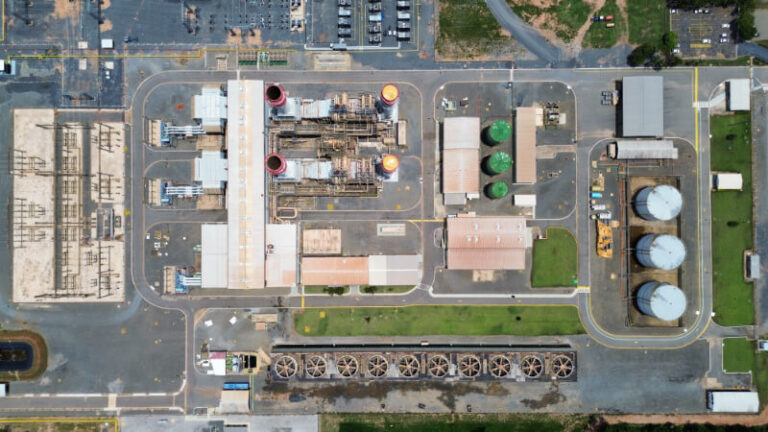
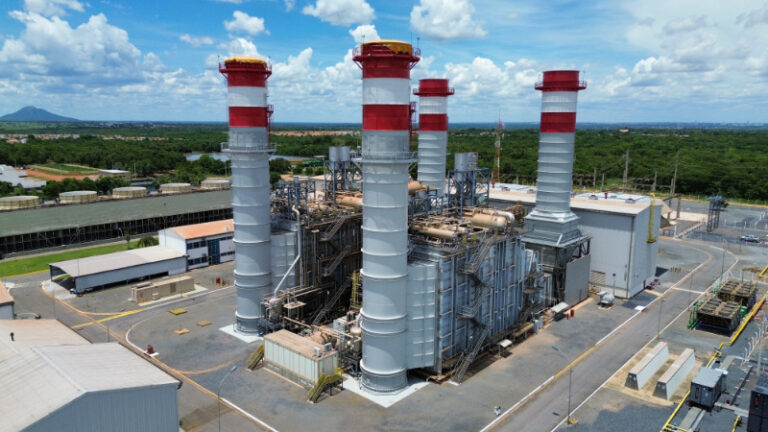
Innovation
Among our priorities is continued investment in Research and Development (R&D). By encouraging the creation and adoption of new technologies, we help reduce greenhouse gas emissions, while ensuring the country’s energy security.
In Andradina (SP), in partnership with researchers from Cepetro, linked to Unicamp, we have developed a research center to study hydrogen produced from biogas for electricity generation. The generation of biomethane from organic waste and electricity from biogas is intended to supply JBS slaughterhouses, but our goal is to scale the technology to the market. The energy generated will be injected into local distribution grids.
